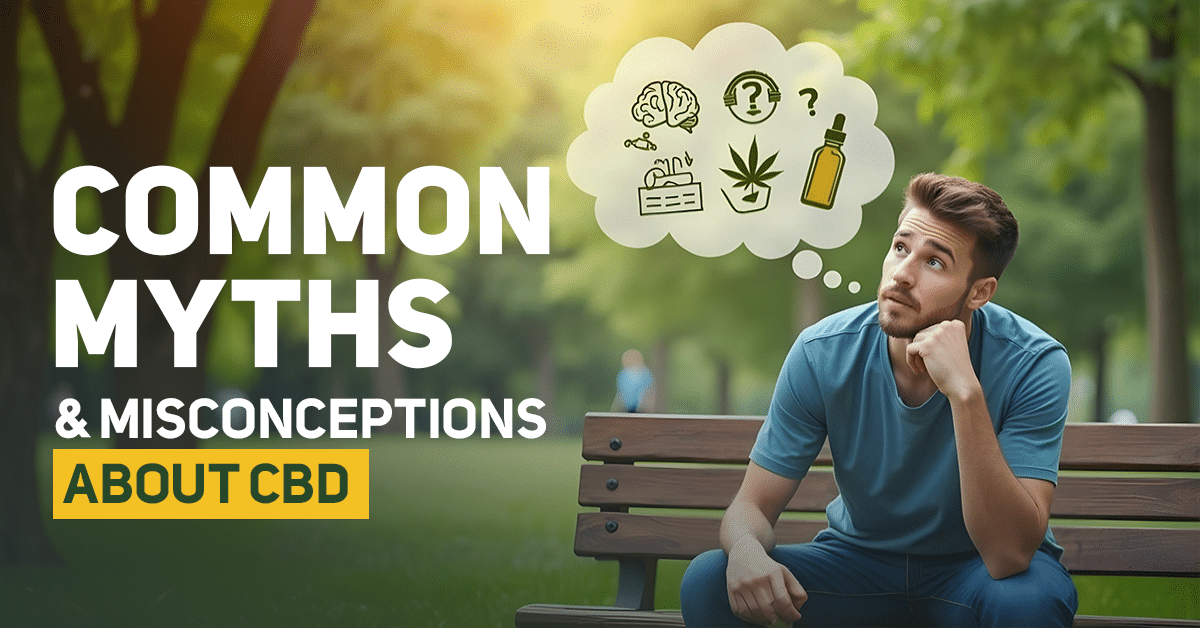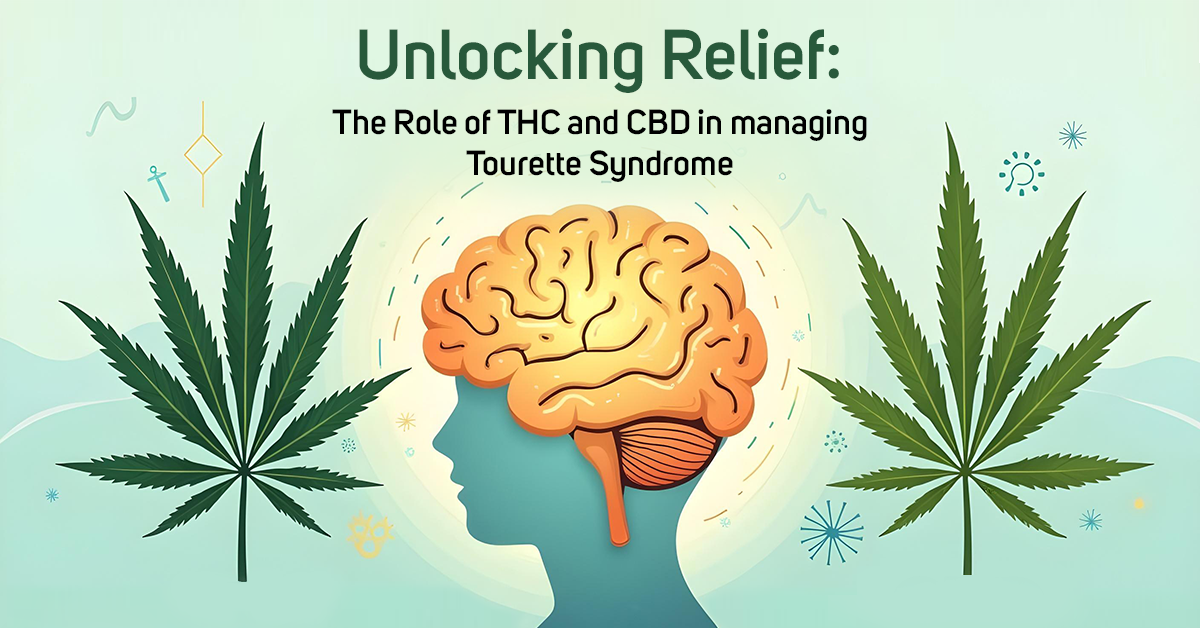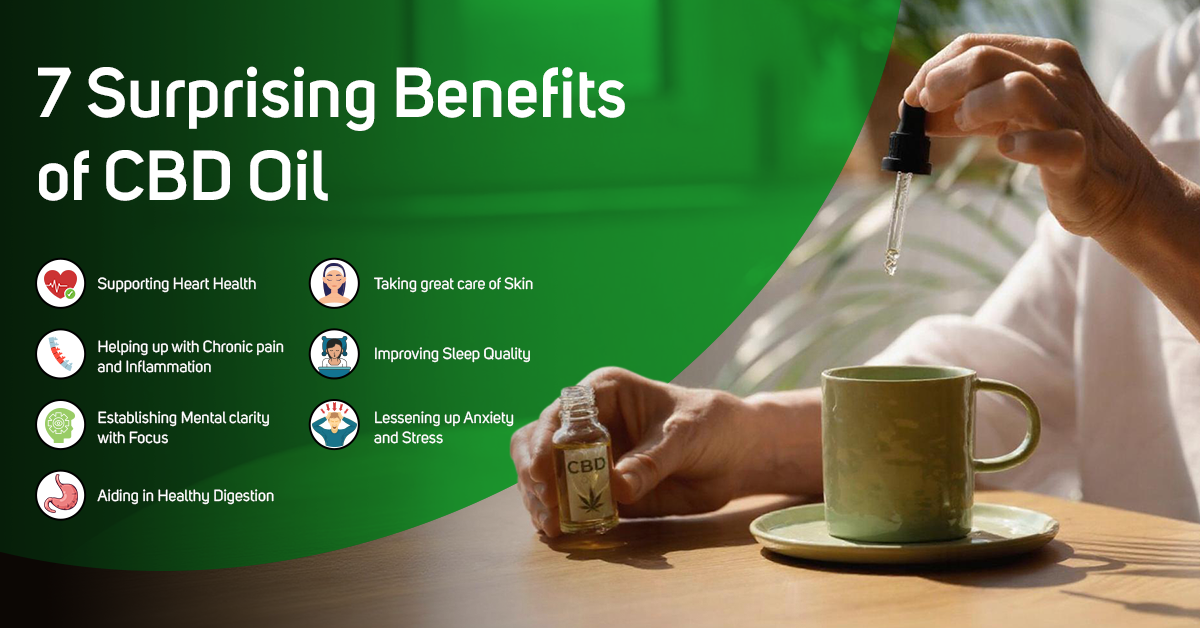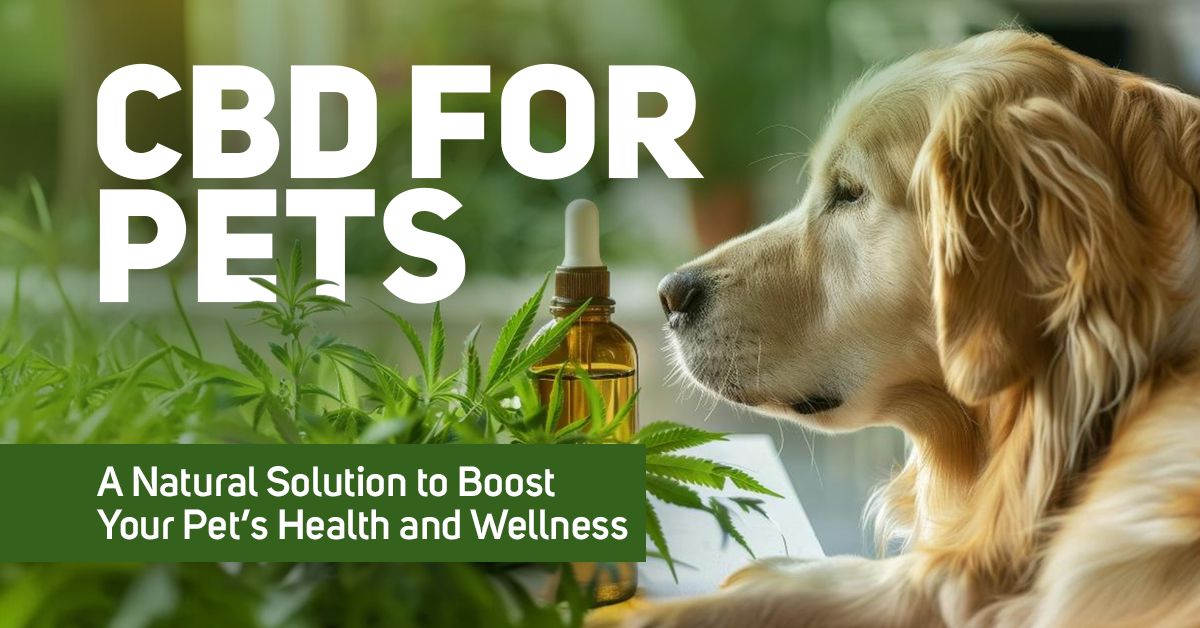- Your cart is empty
- Continue Shopping
THC vs THCA: A deep dive into CBD components
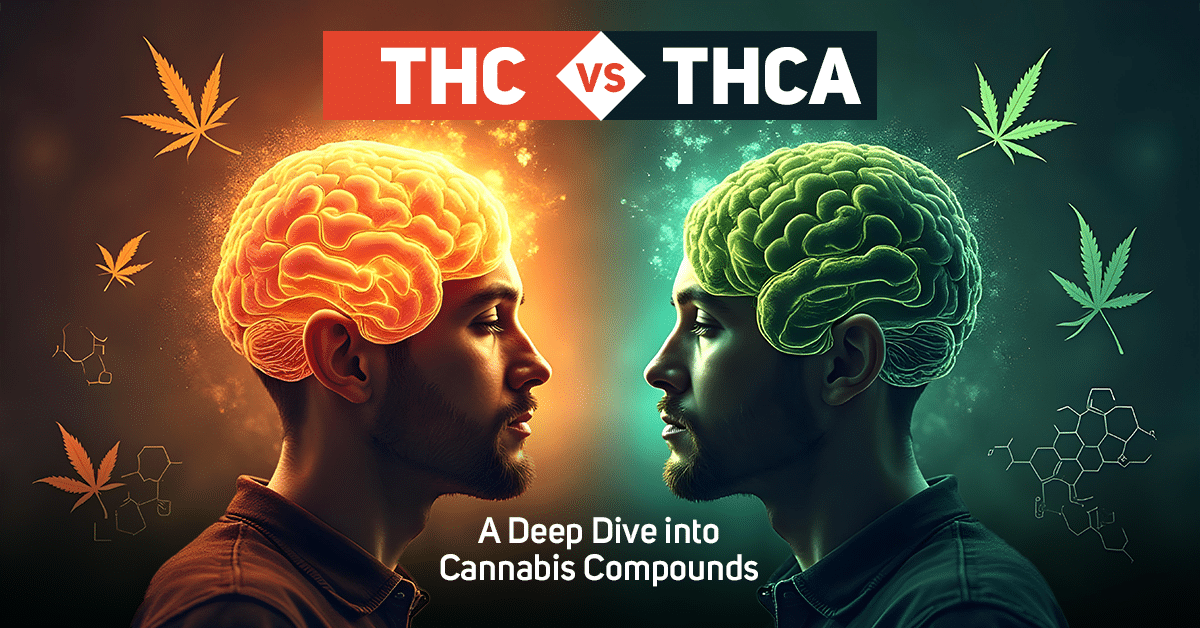
Medicinal cannabis, along with its wellness properties, is the talk of the town, but with this trend there are two of the terms, like THC vs THCA, which are quite important in their own. Two of these components consist of Tetrahydrocannabinol THC and Tetrahydrocannabinolic acid.
Important thing is that these compounds are actually derived from same plant but they mostly differ by their properties and wellness impacts. This article is therefore all about their major differences, impacts and also the topics like THCA vs Delta 8 and THCA vs Delta 9.
Blog Index
THC vs THCA: Major key differences
THC vs THCA: What is the role of decarboxylation in THCA?
Steps of converting THCA to THC
An important comparison: THCA vs Delta 8 and THC vs Delta 9
What percentage of THCA turns to THC?
What does THCA do to the Brain?
What is THC?
It acts as the most wellknown psychoactive compound in cannabis.There, we come across a bundle of properties like being high as marijuana use. Additionally, the working mechanism follows up the binding principle. In human body, as soon as THC is incorporated then the thc binds to CB1 Receptors in brain that alters sensory receptors causing processes like Relaxation, Euphoria and other sensory activities.
Activation of THC is however followed by heating process especially when a person follows the consumption. An effective research by PubMed put forwards the idea that medicinal cannabis compounds like THC are actually useful in the treatment of Anxiety disorders.
THC vs THCA: Highlighting some Taxonomical Features
| Kingdom | Plantae |
| Subkingdom | Trachiobionta |
| Superdivision | Spermatophyta |
| Division | Magnoliophyta |
| Class | Magnoliopsida |
| Subclass | Hamamelididae |
| Order | Urticales |
| Family | Cannabeceae |
| Genus | Cannabis |
| Species | Cannabis Sativa |
| Origin of THC | Leaves and Flowers of Marijuana plant |
| Major Growth | Mexico, Nepal, Northern India, Africa, Afghanistan and many parts of USA |
Source: Frontiers
What is THCA?
When it comes to THC vs THCA then the term THCA actually stands out as the raw form of cannabis especially from cannabis plants. Cannabis, as a result of heat exposure, tends to change into activated forms like THC. Alternatively, the THCA compound, even in raw form, has potential health benefits. According to National Library of Medicine (NLM) even the inactive forms like THCA bring about wellness benefits like being Anti inflammoratory, Neuroprotective, and Anti Emetic.

THC vs THCA: Major key differences
| THC | THCA |
| Psychoactive cannabis compound | Non-psychoactive cannabis compound |
| Activate form | Inactive form |
| Works best even without heating | It needs heating processes like decarboxylation |
| Follows binding action in brain | Does not follow binding action |
| Functioning by Relaxation and Euphoric activities | Anti-inflammatory, Neuroprotective and Anti nauseatic properties |
| Cognitive impairment and increased appetite | No such impact |
THC vs THCA: What is the role of decarboxylation in THCA?
Tetrahydrocannabinolic acid or THCA cannot be used in its raw form therefore, to make it active, the chemical processing by heating process of decarboxylation is taken into consideration. Basically, it is the process of decarboxylation removal of a carboxylic group from THCA. There, the heating process plays a fundamental role in the conversion. Basic methodologies contain Cooking, Smoking, Prolonged exposure to light, and Vaping.
On a chemical note, all of the process starts as soon as raw THCA is extracted as an unprocessed plant. After that, there is all about the conversion of THCA into THC. It is all in all the use of heat or combustion phenomena. Under this process, smoke or burning process is observed, which indicates the release of CO2 or carbon dioxide, bringing about the change of the Carboxylic group into CO2, which is how THCA is changed to THC.
| Steps of converting THCA to THC |
| Initial Step: Extraction of Raw THCA |
| Chemical Activity: Application of heat (THCA + Burning) |
| Final Product: THCA+Heat = THC + CO2 |
Conversion of THCA works best with suitable temperature conditions as even the lowest or hihest temperatures above the Optimum temperature can disrupt the conversion methodology. The set range for conversion consists of 220 ℉ – 280 ℉ (104 ℃ – 121 ℃) for about 30 to 40 minutes. Another condition is to apply the vaporization process at 350 ℉ or 177 ℃ that works perfectly for decarboxylation but it is bit slow process giving a less intense and more controlled effect.
An important comparison: THCA vs Delta 8 and THC vs Delta 9
Cannabis compounds like Delta 8, Delta 9, THC and THCA all are extremely important in their own but the talk of the town is their comparison with each other. So, let us follow their particulations of comparison.
THCA vs Delta 8
| Differentiation Factors | THCA | Delta 8 |
| Chemical composition | Non Psychoactive compound | Psychoactive compound |
| Psychoactive Effects | Does not produce Euphoric effects | Mild psychoactive effects but not high |
| Medicinal Advantages | Anti-inflammatory and Neuroprotective benefits | Anxiety reduction and Pain relief |
| Legal Status | Legal in the United States | Mixed status of legality |
| Availability | As raw cannabis plant | Extracted from cannabis plant |
THC vs Delta 9
| Points of differentiation | THC | Delta 9 |
| Potency | Lesser binding affinity and minor potency | More binding affinity to brain thereby excessive potency |
| Psychoactive factor | Minor Euphoric effects | High Euphoric effects |
| Medical Advantages | Appetite Stimulation, Pain Relief, Nausea Reduction | Lesser Nausea and Vomiting inhibition in Cancer Patients |
| Regulatory Status | Regulation without any limitation | Schedule 1 regulation status |
Most Sought Questions:
Is THCA as good as THC?
The answer to this query revolves around certainities. For instance, the therapeutic benefits of THCA are already visible in the form of anti-inflammation and neuroprotection but these benefits are not as impactful as THC. However, the bulk benefits are still under scientific investigation; therefore, we must wait till these advantages are claimed scientifically.
What percentage of THCA turns to THC?
It all depends upon the heating process of decarboxylation. On average, 87.7% of THCA changes into THC. Therefore, the heating determines the percentage change of THCA. After that, the rationale of impacts matters. So, before heating, THCA functions as an ordinary raw plant with minimum impacts. It all begins after heating, where Euphoric effects are observed extensively.
What does THCA do to the Brain?
THCA leaves a positive impact on the brain by helping with Parkinson’s and also with certain neuroprotective advantages. However, it does not leave any kind of negative impact thereby bringing about positivity rather some negativity.
Is 30% THCA strong?
This percentage of THCA is quite potent. However, it all happens to be a strong cannabis agent under decarboxylation, where the yield of THCA to THC is about 27% upon successful heating.
Conclusion
The discussion for THC vs THCA continues to survive with being Psychoactive and Non-Psychoactive, but let us not deny the potential health benefits on their own. The differences between the two are highlighted in this article so that you can choose from. Now comes the query for quality CBD or THC products online. Therefore, consider Cann CBD as your virtual mall for quality CBD products for this query, as it provides a dynamic range for humans and pets. Now, this CBD Wellness store is giving a signup bonus for being their customer. So, shop cann and get yourself immersed with the wonders of CBD+THC.


